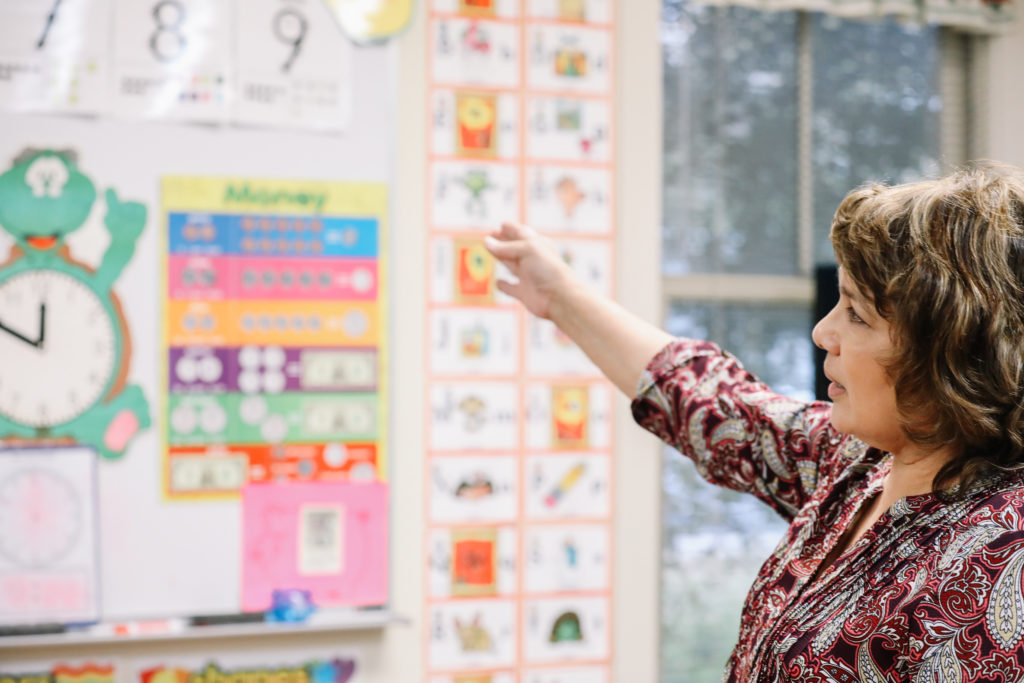As president and CEO of Family Violence Prevention Services, Inc. (FVPS), the umbrella organization in charge of running the Battered Women and Children’s Shelter, Marta Peláez wants to reframe the conversation around domestic violence. She wants people to understand that domestic violence doesn’t just impact the physical and emotional well-being of an individual, but everything within their orbit.
When a woman shows up at the shelter, “she has medical needs, she has mental health needs, she has financial needs, she has transportation needs, she has housing needs, and she has food needs,” Marta explained, adding that each need has to be addressed systematically in order for there to be successful support and intervention.

Battered Women and Children’s Shelter | Photo by Vanessa Velazquez
FVPS opened its doors in San Antonio in 1977 and began operating as an emergency shelter. Today, the shelter offers a comprehensive list of support services on site, and FVPS provides both residential and non-residential programming in partnership with Child Protective Services (CPS) in a model that is being replicated in cities across the state. It is something that Marta is especially proud of and has fought for — collaboration among organizations tackling domestic abuse and child abuse. “Seventy-eight percent of the people that we serve are active families with CPS. By the same token, 78 percent of families in CPS have domestic violence issues.” Marta shared that the San Antonio model helped catch the attention of policy makers who eventually drafted a bill that became law to create a task force to strengthen the relationship between domestic abuse providers and CPS.
When FVPS and CPS began working together, it helped mothers gain trust in the agency and increased cooperation. In domestic abuse cases, CPS is often used as a tool of control and manipulation, Marta said. The agencies now work together to “integrate services [and] to learn from one another precisely because we have the highest incidences of domestic violence and child abuse.”
Bexar County has one of the highest numbers of domestic violence homicides in the country. And as FVPS and other advocates work to reframe and rebuild, San Antonio’s domestic violence deaths continue to rise. As of December 2018, the number of women killed in Bexar County went from five in 2014 to twenty-six. Family violence and child abuse is happening across zip codes in San Antonio and has implications for generations to come.
When asked to explain how FVPS’s work impacts community safety, Marta is quiet for a moment before she finds her words. “A woman who is made whole is going to be an active participant in her community. The mother is the emotional pillar in the family, the beacon of life … if the family is well, the community is well.”

